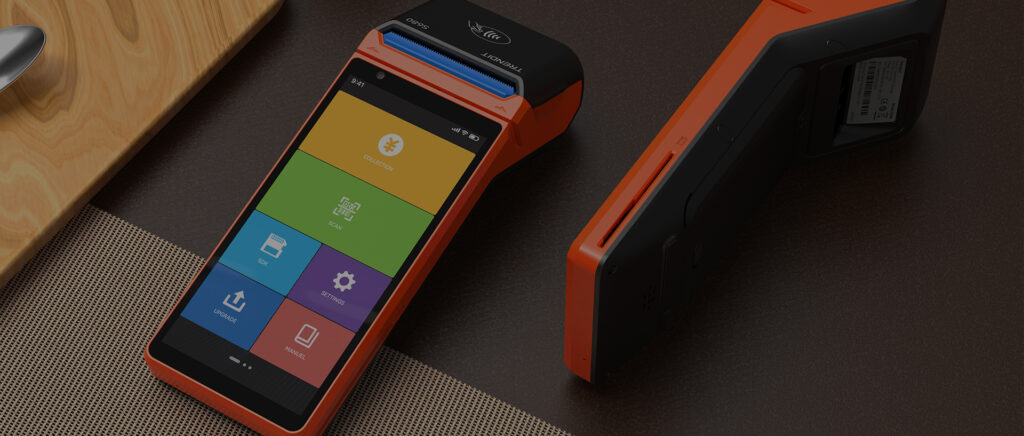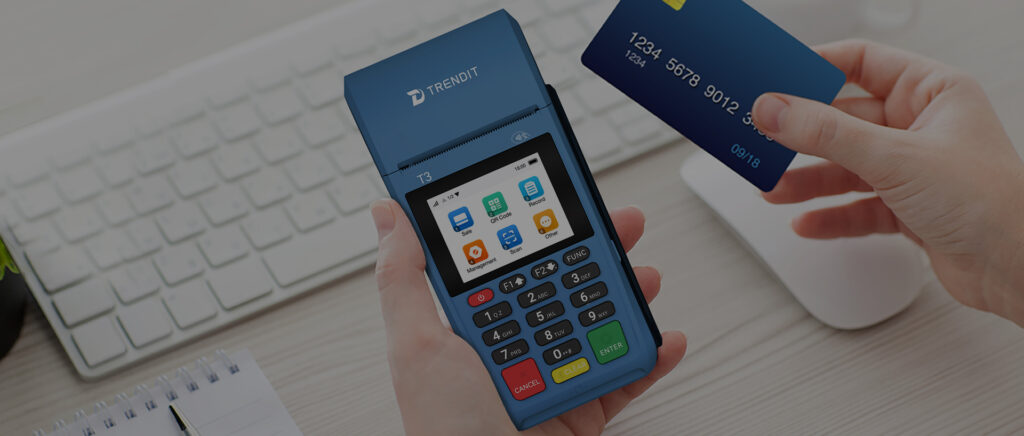Brief Overview: The Vital Role of Point of Sale Systems in Modern Commerce
In the ever-evolving landscape of commerce, the Point of Sale (POS) system stands as a linchpin, orchestrating the seamless exchange of goods and services between businesses and consumers. From the humble cash register to sophisticated digital platforms, POS systems have traversed a transformative journey, mirroring the evolution of consumer behavior and technological advancements. These systems serve as the nerve center of transactions, facilitating not just payments but also inventory management, customer relationship management, and operational analytics.
In today’s fast-paced world, where convenience and efficiency reign supreme, the efficacy of POS systems cannot be overstated. They are not merely tools; they are the lifeblood of retail, hospitality, and numerous other industries, shaping the way businesses interact with their customers and manage their operations.
Introduction
The Significance of Point of Sale Systems in Modern Commerce
Point of Sale (POS) systems serve as the nerve center of retail operations, facilitating transactions and streamlining business processes. In today’s fast-paced commercial landscape, where every second counts, the efficiency and accuracy of POS systems are paramount.
Gone are the days of manual cash registers and handwritten receipts; instead, modern businesses rely on sophisticated POS solutions to manage inventory, process payments, and analyze sales data in real-time. These systems not only expedite transactions but also provide invaluable insights into consumer behavior, helping businesses make informed decisions to enhance their bottom line.
Introduction to Android POS Machines as a Cutting-Edge Solution
Enter the Android POS machine, a revolutionary advancement in the realm of point-of-sale technology. Built on the foundation of the ubiquitous Android operating system, these devices represent the convergence of mobility, versatility, and intelligence. By harnessing the power of Android, businesses can leverage a familiar and robust platform to transform their POS experience.
Whether it’s a bustling retail store, a cozy cafe, or a high-end restaurant, Android POS machines offer unparalleled flexibility and functionality to meet the diverse needs of modern merchants. With sleek touchscreen interfaces, seamless integration capabilities, and a myriad of software options, these devices are poised to redefine the way transactions are conducted.
Preview of What the Outline Will Cover
In the subsequent sections of this article, we will delve deeper into the world of Android POS machines, unraveling their inner workings, exploring their myriad applications, and examining the security measures put in place to safeguard sensitive data. From understanding the evolution of POS systems to dissecting the hardware and software components of Android POS machines, we aim to provide readers with a comprehensive understanding of this innovative technology.
Furthermore, we will showcase real-world use cases across various industries, illustrating how Android POS machines are revolutionizing the way businesses operate. So fasten your seatbelts as we embark on a journey into the exciting realm of Android POS technology.

Understanding Android POS Machines
Definition and Purpose of Android POS Machines
An Android POS machine is a type of Point of Sale system that leverages the Android operating system to facilitate transactions in retail and other industries. It combines hardware components like a touchscreen display, processor, and connectivity options with software applications specifically designed for processing sales, managing inventory, and generating reports. The primary purpose of an Android POS machine is to streamline the checkout process, improve operational efficiency, and provide valuable insights into business performance through data analysis.
Evolution of POS Systems from Traditional to Android-based Solutions
The evolution of POS systems has been marked by a transition from traditional, clunky machines to sleek and versatile Android-based solutions. In the past, businesses relied on standalone terminals with limited functionality.
With the advent of Android technology, POS systems have become more adaptable and user-friendly. The integration of Android OS has allowed for greater customization possibilities, enhanced connectivity options, and improved software capabilities that cater to specific industry needs.
Advantages of Android POS Machines over Traditional Systems
Android POS machines offer several advantages over traditional systems that make them a preferred choice for modern businesses. One key advantage is their flexibility and scalability – businesses can easily customize their Android POS setup to meet varying needs without investing in new hardware.
The user experience is also significantly enhanced with intuitive interfaces and touchscreens that simplify operations for staff members. Moreover, the integration capabilities with other business tools enable seamless data sharing across platforms, enhancing overall efficiency.
Flexibility and Scalability: A Dynamic Duo Empowering Businesses
The flexibility of Android POS machines allows businesses to adapt quickly to changing market trends or operational requirements without major disruptions. Whether it’s adding new payment methods or customizing reporting features, these systems can be tailored to suit specific business needs effortlessly. Scalability further enhances this adaptability by ensuring that as a business grows or diversifies its offerings, the POS system can expand in tandem without significant investment in new infrastructure.
Enhanced User Experience: Elevating Transactions into Engaging Experiences
Android POS machines prioritize user experience by offering intuitive interfaces that simplify complex processes like transaction processing or inventory management. Employees find it easier to learn and operate these systems efficiently due to their familiar touchscreen interactions reminiscent of smartphones or tablets. This streamlined experience not only reduces training time but also enhances customer satisfaction through faster checkouts and personalized service offerings.
Integration Capabilities with Business Tools: Seamlessly Connecting Operational Dots
One standout feature of Android POS machines is their ability to integrate with various business tools such as inventory management software, accounting systems, CRM platforms, and e-commerce websites seamlessly. This integration streamlines operations by eliminating manual data entry tasks across different platforms while providing real-time insights into sales performance,
Cost-Effectiveness & Accessibility: Pioneering Affordability in Transaction Technology
Android POS machines offer cost-effective solutions compared to traditional systems due to lower upfront costs associated with hardware acquisition and maintenance expenses over time. Additionally,
the widespread availability & support for android-based solutions make them accessible to small & medium-sized businesses seeking robust transaction technology without exorbitant investments upfront.

Components and Architecture
Hardware Components of an Android POS Machine
In the realm of Android POS machines, hardware components play a pivotal role in ensuring seamless transactions. At the heart of these machines lies the display, often a touchscreen interface that facilitates user interaction. This display serves as the primary means through which customers and operators engage with the system, providing intuitive navigation and transaction processing.
Furthermore, the processor and memory are the powerhouse of the POS machine, dictating its speed and performance. A robust processor coupled with ample memory ensures swift transaction processing and multitasking capabilities, crucial for handling the demands of modern commerce.
Connectivity options are another essential aspect, enabling the POS system to communicate with external devices and networks. From Ethernet and Wi-Fi to Bluetooth and NFC, these connectivity features ensure flexibility and compatibility with various business environments.
Input Devices and Peripheral Support
The versatility of an Android POS machine extends beyond its core components to encompass a myriad of input devices and peripheral support. Touchscreen interfaces, akin to those found in smartphones, dominate the landscape of input devices, offering intuitive and responsive interaction for users.
Alongside touchscreens, keypads provide alternative input methods, catering to diverse user preferences and operational needs. Peripheral support further enhances the functionality of Android POS machines, enabling seamless integration with essential devices such as printers and barcode scanners.
Printers facilitate the generation of receipts and invoices, while barcode scanners expedite product identification and inventory management. Together, these input devices and peripheral support mechanisms form a cohesive ecosystem that empowers businesses to streamline their operations and enhance customer experiences.

Software Architecture of Android POS Systems
Operating System: Android
At the core of every Android POS system lies the Android operating system, renowned for its versatility and robustness. Leveraging the power of Android, POS machines benefit from a familiar and user-friendly interface, akin to that of smartphones and tablets.
This familiarity not only simplifies training for operators but also enhances user adoption and satisfaction. Moreover, the Android ecosystem offers extensive customization options, allowing businesses to tailor the POS system to their specific needs and branding requirements.
POS Software Applications
Complementing the underlying Android platform are specialized POS software applications tailored to meet the unique requirements of various industries and business models. These applications encompass a wide range of functionalities, including transaction processing, inventory management, and customer relationship management (CRM).
From retail establishments to restaurants and hospitality venues, POS software applications empower businesses to streamline their operations, optimize inventory levels, and cultivate lasting customer relationships. Additionally, many POS software solutions offer cloud-based integration, enabling real-time data synchronization and remote management capabilities.
Security Features and Protocols
Security remains paramount in the realm of Android POS systems, given the sensitive nature of transactional data and customer information. To safeguard against potential threats and vulnerabilities, these systems implement robust security features and protocols. Encryption mechanisms ensure the confidentiality and integrity of data transmitted between the POS terminal and backend servers, thwarting interception and tampering attempts.
Furthermore, authentication protocols, such as biometric recognition and tokenization, bolster access controls and mitigate the risk of unauthorized access. Regular software updates and patches also play a crucial role in maintaining the security posture of Android POS systems, addressing newly discovered vulnerabilities and emerging threats.

Operational Benefits of Android POS Machines
Flexibility and Scalability: A Dynamic Duo Empowering Businesses
The flexibility of Android POS machines allows businesses to adapt quickly to changing market trends or operational requirements without major disruptions. Whether it’s adding new payment methods or customizing reporting features, these systems can be tailored to suit specific business needs effortlessly. Scalability further enhances this adaptability by ensuring that as a business grows or diversifies its offerings, the POS system can expand in tandem without significant investment in new infrastructure.
Enhanced User Experience: Elevating Transactions into Engaging Experiences
Android POS machines prioritize user experience by offering intuitive interfaces that simplify complex processes like transaction processing or inventory management. Employees find it easier to learn and operate these systems efficiently due to their familiar touchscreen interactions reminiscent of smartphones or tablets. This streamlined experience not only reduces training time but also enhances customer satisfaction through faster checkouts and personalized service offerings.
Integration Capabilities with Business Tools: Seamlessly Connecting Operational Dots
One standout feature of Android POS machines is their ability to integrate with various business tools such as inventory management software, accounting systems, CRM platforms, and e-commerce websites seamlessly. This integration streamlines operations by eliminating manual data entry tasks across different platforms while providing real-time insights into sales performance,
Cost-Effectiveness & Accessibility: Pioneering Affordability in Transaction Technology
Android POS machines offer cost-effective solutions compared to traditional systems due to lower upfront costs associated with hardware acquisition and maintenance expenses over time. Additionally,
the widespread availability & support for android-based solutions make them accessible to small & medium-sized businesses seeking robust transaction technology without exorbitant investments upfront.

Components and Architecture
Hardware Components of an Android POS Machine
In the realm of Android POS machines, hardware components play a pivotal role in ensuring seamless transactions. At the heart of these machines lies the display, often a touchscreen interface that facilitates user interaction. This display serves as the primary means through which customers and operators engage with the system, providing intuitive navigation and transaction processing.
Furthermore, the processor and memory are the powerhouse of the POS machine, dictating its speed and performance. A robust processor coupled with ample memory ensures swift transaction processing and multitasking capabilities, crucial for handling the demands of modern commerce.
Connectivity options are another essential aspect, enabling the POS system to communicate with external devices and networks. From Ethernet and Wi-Fi to Bluetooth and NFC, these connectivity features ensure flexibility and compatibility with various business environments.
Input Devices and Peripheral Support
The versatility of an Android POS machine extends beyond its core components to encompass a myriad of input devices and peripheral support. Touchscreen interfaces, akin to those found in smartphones, dominate the landscape of input devices, offering intuitive and responsive interaction for users.
Alongside touchscreens, keypads provide alternative input methods, catering to diverse user preferences and operational needs. Peripheral support further enhances the functionality of Android POS machines, enabling seamless integration with essential devices such as printers and barcode scanners.
Printers facilitate the generation of receipts and invoices, while barcode scanners expedite product identification and inventory management. Together, these input devices and peripheral support mechanisms form a cohesive ecosystem that empowers businesses to streamline their operations and enhance customer experiences.
Software Architecture of Android POS Systems
Operating System: Android
At the core of every Android POS system lies the Android operating system, renowned for its versatility and robustness. Leveraging the power of Android, POS machines benefit from a familiar and user-friendly interface, akin to that of smartphones and tablets.
This familiarity not only simplifies training for operators but also enhances user adoption and satisfaction. Moreover, the Android ecosystem offers extensive customization options, allowing businesses to tailor the POS system to their specific needs and branding requirements.
POS Software Applications
Complementing the underlying Android platform are specialized POS software applications tailored to meet the unique requirements of various industries and business models. These applications encompass a wide range of functionalities, including transaction processing, inventory management, and customer relationship management (CRM).
From retail establishments to restaurants and hospitality venues, POS software applications empower businesses to streamline their operations, optimize inventory levels, and cultivate lasting customer relationships. Additionally, many POS software solutions offer cloud-based integration, enabling real-time data synchronization and remote management capabilities.
Security Features and Protocols
Security remains paramount in the realm of Android POS systems, given the sensitive nature of transactional data and customer information. To safeguard against potential threats and vulnerabilities, these systems implement robust security features and protocols. Encryption mechanisms ensure the confidentiality and integrity of data transmitted between the POS terminal and backend servers, thwarting interception and tampering attempts.
Furthermore, authentication protocols, such as biometric recognition and tokenization, bolster access controls and mitigate the risk of unauthorized access. Regular software updates and patches also play a crucial role in maintaining the security posture of Android POS systems, addressing newly discovered vulnerabilities and emerging threats.

Security and Compliance
Encryption and Data Protection Measures
In the realm of Android POS machines, ensuring the security of sensitive data is paramount. Encryption serves as a formidable shield against potential breaches by converting plaintext information into an unreadable format, accessible only to authorized parties with the decryption key.
Advanced encryption standards such as AES (Advanced Encryption Standard) are commonly employed to safeguard data during transmission and storage within Android POS systems. Additionally, implementing robust data protection measures, including tokenization and end-to-end encryption, fortifies the defense against unauthorized access and data interception, assuring both merchants and customers of the integrity of their transactions.
Compliance with Payment Card Industry Data Security Standard (PCI DSS)
Adherence to the Payment Card Industry Data Security Standard (PCI DSS) stands as a cornerstone in the realm of electronic payment processing. Android POS systems, as conduits for financial transactions, must align with the stringent requirements outlined by PCI DSS to guarantee the confidentiality, integrity, and availability of cardholder data.
Compliance entails implementing robust security measures, conducting regular security assessments, and maintaining stringent access controls to thwart potential vulnerabilities. By complying with PCI DSS standards, businesses utilizing Android POS machines not only uphold the trust of their clientele but also mitigate the risk of regulatory penalties and reputational damage stemming from data breaches.
Risk Mitigation Strategies for POS Security Breaches
Despite the robust security measures integrated into Android POS systems, the threat landscape remains dynamic and ever-evolving. Hence, proactive risk mitigation strategies are indispensable to preemptively address potential security breaches. Implementation of multi-layered security protocols, including intrusion detection systems and real-time monitoring, enables swift identification and containment of suspicious activities.
Moreover, fostering a culture of cybersecurity awareness among employees through comprehensive training programs bolsters the human firewall, augmenting the overall resilience of the POS ecosystem against emerging threats. By adopting a preemptive stance towards risk mitigation, businesses can fortify their defenses and minimize the likelihood of detrimental repercussions resulting from security breaches.
Importance of Regular Software Updates and Patches
In the perpetual arms race between cybercriminals and cybersecurity practitioners, staying one step ahead necessitates a proactive approach towards software maintenance. Regular software updates and patches play a pivotal role in fortifying the security posture of Android POS systems by addressing known vulnerabilities and mitigating potential exploits. These updates not only shore up the system’s defenses against evolving threats but also enhance its functionality and performance, ensuring optimal user experience.
Failure to promptly apply patches and updates leaves Android POS systems susceptible to exploitation, potentially culminating in data breaches, financial losses, and irreparable damage to brand reputation. Thus, by prioritizing the timely deployment of software updates, businesses demonstrate their commitment to safeguarding the integrity and security of their operations.

Recommendations for excellent POS system companies
Trendit Technology is a premier company specializing in stable transaction solutions, focusing on POS hardware and software to meet the diverse transaction needs of various industries. Annually, over 2.5 million merchants opt for their POS products and services, while their Cloud Printer and Online Ordering SAAS solutions are trusted by more than 300,000 merchants. Additionally, Trendit’s cloud printers serve over 500,000 overseas clients for QR code payments, earning widespread recognition and trust.
The company’s competitive edge stems from its robust research and development capabilities and stable supply chain partnerships. Annually, Trendit invests more than 10% of its profits in research and development, continually enhancing its core technologies. Through enduring collaborations with reliable suppliers, the company maintains advanced production processes and stringent quality inspection standards, ensuring timely product delivery and fulfillment of customer requirements.
Trendit Technology’s products hold industry certifications such as PCI, EMV, VISA, Mastercard, Discover, AMEX, CE, and FCC. They support customization and collaborative development for payment service providers, banks, and independent software vendors, offering tailored solutions to meet specific needs. Furthermore, they provide OEM, ODM, and CKD/SKD services for small-batch orders, aiding global agents in expanding their businesses.
Committed to creating value for customers, Trendit Technology ensures reliable and affordable transaction solutions. By partnering with them, clients gain access to cost-effective products, swift delivery, excellent customer experiences, and comprehensive after-sales support. Trendit Technology stands as a trusted partner for reliable transaction solutions.

Conclusion
Embracing the Future of Transactions
The Android POS machine stands as a beacon of innovation in the realm of transaction systems, heralding a new era of efficiency and convenience in modern commerce. Its significance cannot be overstated, as it transforms mundane transactions into seamless experiences for both businesses and consumers alike.
